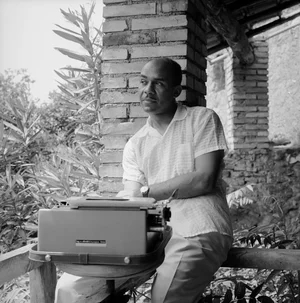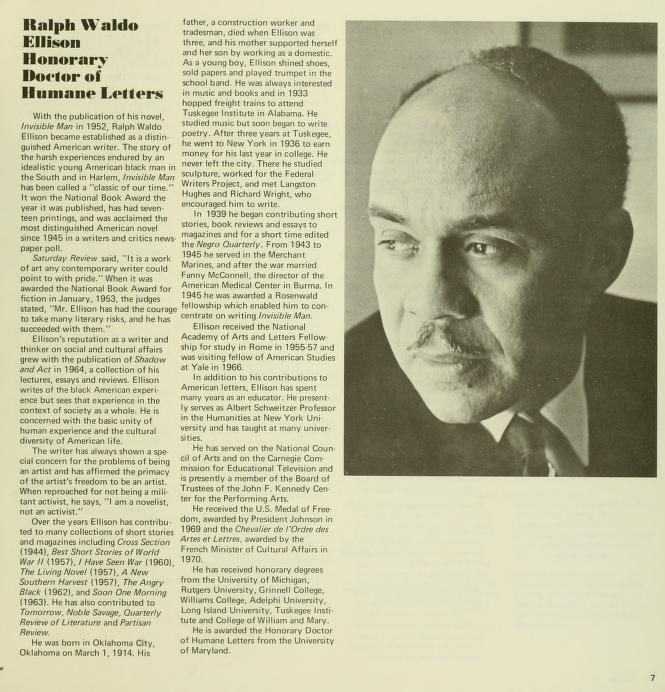By: Evangeline Gahn
Ralph Waldo Ellison is one of the most iconic Black authors of the twentieth century. Born in Oklahoma City, Oklahoma in 1913, and named after the transcendentalist essayist Ralph Waldo Emmerson, Ellison’s father hoped he would grow up to be a poet.
James Whitmore/The Life Picture Collection/Getty Images
Ellison’s most famous work is the novel Invisible Man, published in 1952. The book deals with many of the major social and political issues he was facing as a Black man in America in the post-war period, such as Black nationalism, as well as the struggle between individual identity and community identity.
Deeply concerned with society, and the places different people hold within it, Ellison nevertheless considered himself an artist and a novelist first. The freedom of an artist to be such for its own sake was the central philosophy of his career, from Invisible Man and other novels to his work as a lecturer and professor. In an interview for the New York Times in 1966, Ellison said,
I am a novelist, not an activist… But I think that no one who reads what I write or who listens to my lectures can doubt that I am enlisted in the freedom movement. As an individual, I am primarily responsible for the health of American literature and culture. When I write, I am trying to make sense out of chaos.
University of Maryland Commencement Program, May 12th, 1974. University Archives Digital Collections.
By 1974, Ellison was an internationally recognized literary force. As the first Black commencement speaker for the University of Maryland, College Park, he was awarded an honorary degree as a Doctor of Humane Letters; this was his ninth such honorary degree. Unfortunately, no copy of the speech Ellison gave remains in the University Archives. Instead, we encourage our readers to explore some of his literature, essays, novels, and other speeches.
Though Ellison died in 1994, at the age of 81, his legacy of engaging with our world and ourselves as students, artists, activists, and Americans endures in the work and lives of everyone who sees the world, with its justice and injustice alike, and confronts it.
Evangeline Gahn is a graduate student assistant in University Archives, pursuing her Master’s of Library and Information Science. With a background in history, philosophy, and creative writing, she is interested in using archives to understand the past and the present, and creating a more accessible and inclusive space for all members of the University community.


